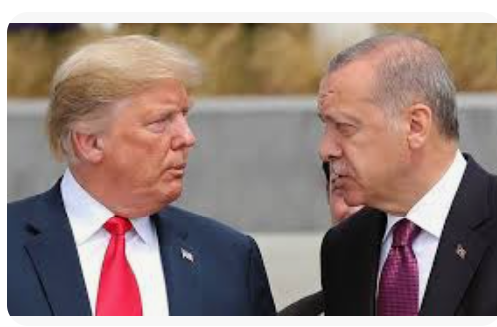Dr Omer Taspinar makes a very valuable contribution to a nagging question foremost in the minds of Ankara and Turkey watchers at large: How will the frayed Turko-American relationship will evolve under either presidential candidate. His article titled “New White House, Old Problems: Turkish-American Relations in 2025” concludes:
Independent of who the winner of the 2024 presidential election in the United States is, Turkish American relations are not likely to witness a radical departure from current dynamics. Problems between Ankara and Washington have become structural in the last decade, mainly due to diverging national security priorities and interests. Developments on two fronts, however, are worth following closely: namely the fate of S-400s Russian missile defense system in Türkiye and U.S. support for Syrian Kurds.
Taspinar observes: Under a Trump White House, a more transactional, opportunistic, and mercurial Turkish-American relationship is once again likely to emerge – in ways similar to the ups and downs of the first Trump presidency between 2016 and 2020. President Erdogan probably sees Trump in much more favorable terms as a fellow strongman who will take his phone calls and listen to his views as he did during his previous term. By now, it should be obvious that open lines of communication with the White House will not change Erdogan’s bigger problem: the poor reputation of Ankara in Congress and in the American national security bureaucracy combined with intractable problems such as the S-400 missile defense system, which Türkiye purchased during Trump’s first term. A reset at the presidential level is nevertheless likely to create false expectations, especially in Ankara, only to generate more frustration once it becomes obvious that well-established patterns at the policy levels will not change in Washington.
An American exit from Syria could potentially have tragic consequences for Pentagon’s Kurdish allies. But if well-negotiated and skillfully leveraged by Washington, this American exit could also help a newly burgeoning Kurdish opening in Türkiye. Given Erdogan’s Machiavellian track record in dealing with the Kurdish issue at home, there should be well-deserved skepticism about this new opening. It will probably be a self-serving affair to register Kurdish political support to prolong his term limit under the new presidential system established in 2017. Yet, from a Turkish perspective, it is hard to argue against the fact that an American exit from Syria will remove the most important irritant in bilateral ties. After all, Ankara would love to have the upper hand in charting any new course with Kurds. And if there is anything that creates more alarm for Ankara’s conspiratorial strategic culture than Kurdish nationalism itself, it is Kurdish nationalism supported by the United States.
The second factor that could significantly improve bilateral relations will be the fate of the Russian missile system that Ankara purchased from Russia in 2019. Ankara is currently under CAATSA (Countering American Adversaries Through Sanctions Act) sanctions and has been ejected from the F-35 program because of its ownership of the S-400s. Today, a relatively new American proposal to transfer this Russian system to the US-controlled sector of the Incirlik base near Adana appears to be on the table. It remains to be seen whether Ankara will accept this offer. Transactional dynamics will certainly be at play – such as maximalist Turkish demands for a return to the F-35 program not only as a purchaser but also as a partial producer in the production chain, as was the case originally. Of course, the even more challenging part for Ankara, in case it decides to go along with the American offer, will be the Russian reaction. Moscow was quick to remind Ankara that the purchase of the Russian missile defense system includes an end-user certificate that prohibits third-party engagements without Russia’s consent.
Is there a potential upside? Yes:
Time will show whether Ukraine will provide a cure to fraying Turkish-American relations. The recent shift from the Middle East to Eastern Europe in the center of gravity of Turkish-American relations, may bring back some positive dynamics. Türkiye’s geostrategic relevance in the Black Sea region, its control over the straits, and its procurement of much-needed drones to Ukraine, particularly during the early phase of the Russian invasion, is not lost on American policymakers who were pleasantly surprised by Ankara taking risks with Moscow. But President Erdogan almost never fails to disappoint and his decision to leverage Sweden’s NATO membership for the sale of F-16s to Ankara was a case in point.
